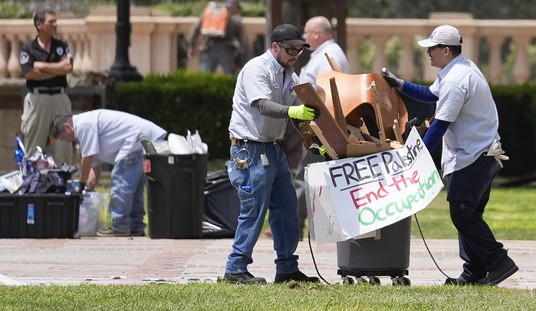Why did we all root for Luke Skywalker and the Rebellion, cheering as one when the Death Star burst into a ball of flame? Why do we unanimously detest Panem’s Capitol, sharing a surge of joy when District 11 erupts after Rue’s senseless murder in The Hunger Games? What accounts for our universal loathing of Lady Catherine de Bourgh, Jane Austen’s most refined dictator who, insisting Mr. Darcy marry her insipid daughter, rivals the Emperor and President Snow in her own Georgian way?
Would it really have been so awful had the Empire ruled the Galaxy? Nobody appeared to be starving. It’s true the citizens of Panem were hungry, but at least they were safe from “war, terrible war.” The demise of Darcy and Elizabeth Bennet’s proud and prejudiced love would have cost them their status as the most beloved couple ever to live and breathe papyrus and yet, Darcy and Anne de Bourgh would have been rich — lacking neither the company of polite society nor polished silver.
A deep anguish probably stirred within your heart at these proposals. This malaise would turn to raw anger if we replaced these light-hearted examples of tyranny with darker ones, the true shadows of history whose malice brought real and lasting ruin and misery. Unanimous indignation meets the suggestion that since basic necessities of life were often provided by Stalin, Hitler, or Mao, totalitarianism is a viable living condition. Why?
We instinctively know, as human beings, we need more than food, shelter, and the absence of violence to be happy. This consuming hunger for joy is so important that Aristotle, the Definer himself, designates happiness as the final end for which we are created. To insist people, whether flesh and blood or birthed by quill, content themselves with crusts of bread or caviar instead of true human happiness violates our deepest sense of what it means to be human.
So what necessary ingredient of bliss was missing in the Emperor’s Galaxy, in Hunger Games‘ haunted Panem, and in Austen’s corset string-strangled English countryside? The essential right to self-determination. Nothing is more human than this internal principle of self-direction; the ability to freely select for ourselves from among the near-infinity of goals and the means to attain personally defined success. Without this, we are not human, but animals. This freedom is the condition for our joy and this is why, confronted with all forms of invasive denial of freedom, we rebel.
In Cults: The Mind Enslaved Parts I and II, we considered the normal and cultic human intellectual processes. It seemed that nothing could be worse than surrendering a mind to the shared Gnostic Brain of a cult. Understanding now the primary importance of human freedom for happiness, we consider how cults damage this even more fundamental faculty, the free will.
Being able to choose our lives is only half the secret of human fulfillment. Each person who ever walked this earth is unique, carrying within a precise, singular combination of gifts, passion, and precise vocation. It’s quite astounding that, in spite of the world having hosted trillions of people, no two have had the same potential or mission. Yo-Yo Ma was preceded by more than one passionate lover of the cello, and Raphael was not the first to exist for his brushes and canvas, yet no one will ever fill the world with the same sounds or images as these artists.
Pope John Paul II spent his childhood and early youth under the successive tyrannies of Hitler and Stalin. Witnessing the extinction of the intangible and unearthly uniqueness of so many human beings made him the fierce defender of the dignity of the human person. It is the attack on this dignity, this gift-based individuation of human persons that constitutes the worst offense of cults. For a human life to be fulfilling, in addition to the ability to self-determine, we must walk the demanding and often lonely path from cultivation of the unique gift until it is a burning passion. On this journey, we must be guided by the signature “calling.” Cults erase this entire process by which we become truly authentic persons, replacing dreams with sham agendas and codes of behavior that render members little more than carbon copies of one another.
Rigid-structure cults such as Scientology’s Sea Org or fundamentalist Mormon polygamy not only substitute the establishment of utopia for the true dream of members, they often go so far as to select marriage partners and physically prohibit basic exercise of free will. More fluid cultic organizations curtail the scope and sense of members’ choices. This is done through fanatical visions of human life. There are so many barriers placed between members and the world in which they live; they are continually prevented by fear and paranoia from pursuing their personal goals. No external fences exist, but members live in a group-inspired internal jail nonetheless.
In a small Midwestern town a young man born in a cultic religious organization was gifted with a phenomenal singing voice. Guided by the over-arching conviction that the industry is fraught with temptations, the parents not only prevented their son from singing with anyone but family, they also objected to his attending college to develop his talent. The last time I saw this young man, he was stocking shelves in a little grocery store. He is safe; the light has gone out of his eyes.
I vividly remember walking on the Regis University campus in Denver for the first time. After ten years in a cloister and three slowly rejecting the belief that, as a woman, my calling was to live on a farm, sew my family’s clothes, and leave the studying and careers to the men, I started school. I am certain that the odd thirty year old clutching her chemistry book while feverishly taking notes looked positively deranged among the sea of half-sleeping eighteen-year-old freshmen, but only if you have suddenly realized the whole world is open to you can you understand the ecstasy of learning nomenclature or trying to answer the test question, “Is hell exothermic or endothermic?”
Cults are evil because they ruin authenticity, taking responsibility for the cultivation of our gifts and bringing our unique contribution to the world. If the Giver of gifts, talents, and dreams designed His creatures so our very happiness depends on individuality, there is no greater evil than systematically rendering us interchangeable and monochromatic.
There is a social cost for this perversion of personality. Those lost in cults, advancing abstract, collective ideals, are not fulfilling their mission. These missing people create a sort of cosmic vacuum with real repercussions across time and space. Aristotle spoke of the “vocation,” intimating that our unique gift plays a specific role in society. This call may affect vast numbers, as in the life of Pope John Paul and, forgive me, Luke Skywalker or Katniss Everdeen. Perhaps the only one to benefit from our authenticity will be the Darcy or Elizabeth of our own little Longborns, yet we make a true and lasting difference.
Freedom from false barriers between ourselves and our dreams is a great gift in itself that we should never take for granted. Even if we are not in a cult, we can examine our own lives to see if we have taken responsibility for our dignitatis humanae.
The long journey out of a cult presents few challenges as great as assuming responsibility for our gifts, our passion, and our calling. Especially in cults where many interests were dubbed “worldly,” or “not appropriate for your gender,” it is very difficult to overcome the fear of wrongdoing or the habit of looking to external authority for indication of what ought to be done with one’s life. Not all cults are the same, not all use identical tactics to control behavior. Often, the most damaging cults are those full of true believers in which there is no calculated desire to usurp the freedom of members, only distorted and fanatical fear of the dangers inherent in living in a complex world.
Reaching out to cult members is difficult because of the Gnostic defense-reactions. When it is possible, introducing cultic family or friends to activities and opportunities related to their gifts and talents is one way to help them feel the buried fire of the innate passion and hear the muted but ever-present echo of their calling.
****
Related on cults and movies at PJ Lifestyle:












Join the conversation as a VIP Member